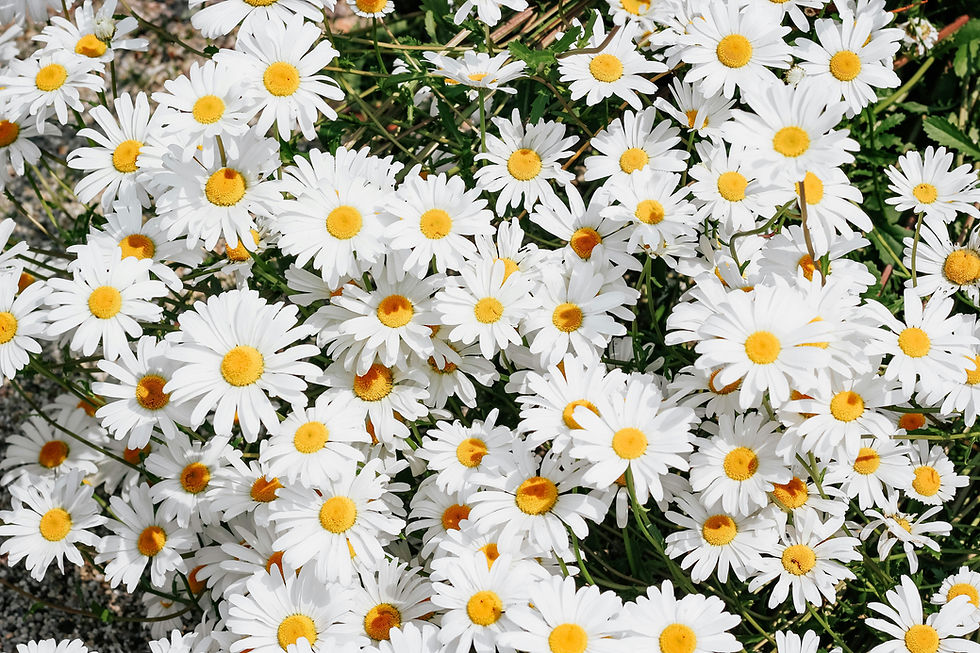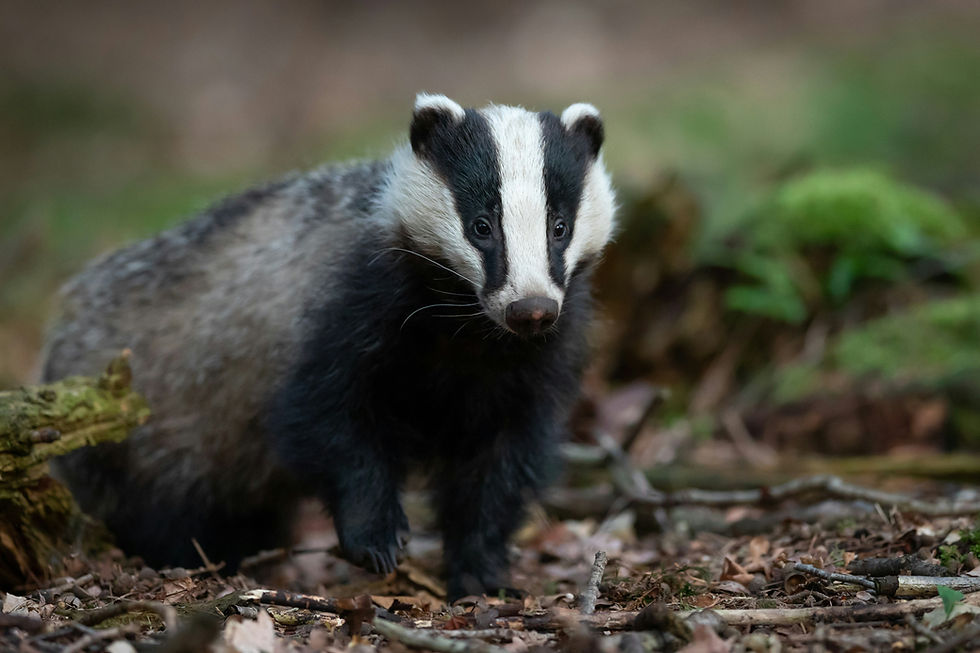On the Origin of Idioms
- sjenningswriter
- Jul 23, 2024
- 5 min read
I've always been fascinated by the origins of words and phrases - we use idioms so casually in our everyday speech with little to no awareness of where they came from. When I was living in California, I was particularly surprised to learn that though we spoke the same language these idioms did not always translate, or were somehow slightly different. I was surprised for instance to hear a colleague describing someone with a penchant for gardening as having a green thumb as I'd only ever heard green fingers. I assumed they had misheard the phrase and now used it incorrectly, but no, it was in fact the common phrase in the US. Here are a few of my favourite idioms that I have looked up over time, and a bit on their origins and backstories.

Whoops-a-Daisy/Oopsy Daisy (and other variants)
The phrase that inspired this post. First of all it popped up on a TV quiz and then I heard it again only a few days later which got me to wondering where it came from. A phrase most likely heard or uttered when some small mishap has befallen the speaker or someone in their vicinity... particularly in lieu of some stronger words if little ears are present. Safe to say, for a rather simple phrase the origins are deep: Merriam-Webster does a pretty deep dive on it. But it seems to be a corruption of the 18th century upaday with the up/ups/oops/whoops referring to the lifting up (of the injured party?) and the the -aday/a-daisy from the earlier alackaday an expression of sorrow or regret. So in summation an expression of help and regret for the minor tragedy that has befallen the speaker or target. So nothing at all to do with daisies then!
That's the Badger!
Now for a bit of an odd one and one that feels particularly British, and one that regularly leaves my mouth, 'that's the badger'. Normally used when you've just worked out the solution/remembered what it was you were trying to work out, or otherwise have found what you were looking for, but why badgers?! Cute though they are. Sadly, I've yet to find an answer to the original meaning and why exactly we decided that finding just what you needed could be expressed in badgers. It apparently comes from the West Country though.

Costs an Arm and a Leg
The meaning of this one is obvious enough, that something is dramatically expensive. Whilst the origin is less than clear, with a lot of ideas thrown around, it is a popular one, appearing in a variety of forms across languages and cultures. I've included it here as one of the theories (though unlikely true as the phrase didn't pop up until much later in history) is rather fun. The story goes that if sitting for an artist's portrait, you'd get the traditional head and shoulders, if you wished to include more, the whole body and indeed your arms and legs, you'd be paying a lot more. Not true perhaps but fun either way. It didn't become popular until the early 20th century - post-war in fact - so perhaps a much darker and more literal expression of the costs of war. Much darker indeed, than we'd imagine when casually complaining about how the average cup of coffee now costs a minimum of a fiver.
Bob's Your Uncle
Another classic, 'Bob's your uncle' and the extended version 'Bob's Your Uncle and Fanny's Your Aunt'. Meaning, 'and there you go!' or 'and there you have it!' or similar. Another particularly British one, but who is Bob and why is he my uncle?! You might be spotting a pattern here, but it seems that when it comes to origins of idioms, they are often difficult to pin down. But again one fun hypothesis sees everyones favourite internet buzzword purported to be the cause - nepotism! The story has it that the Prime Minister, one Robert Gascoyne-Cecil, 3rd Marquess of Salisbury (that's Bob) gave his nephew Arthur Balfour the role of Chief Secretary for Ireland a rather unpopular choice. And so Arthur's qualifications and claim to the role was quite literally that Bob was indeed, his uncle. Yet again, it seems the phrase didn't become popular until some forty years later, so probably unlikely too but it's a good story either way.
Spill the Beans
'Come on, spill the beans', you might say as you attempt to extract a secret from your co-worker or friend... particularly one that should not yet be disclosed. But why beans? And also what beans? Being British I always imagined the classic baked beans, coffee would definitely smell better and be a lot easier to clean up.

Well apparently this is a really old one, with the theory taking us all the way back to the home of democracy in Ancient Greece. What we do seem to know is that people cast their vote using beans but from there the story diverges. One has it that a light coloured bean voting in the affirmative and a darker bean a vote against. Should one knock over the receptacle of beans, accidentally (or with more nefarious intent perhaps) they would thus, quite literally spill the beans, and reveal the result of the secret ballot prematurely. Another version tells that candidates laid out their helmets into which people would place a bean to vote for them. The winner's helmet was returned to them, they spilled the beans out, revealing their victory and accepting the result.
Whichever is true this seems to be a much older one and the meaning seems to have remained the same for quite some time.
Barking up the Wrong Tree
When we use the phrase 'barking up the wrong tree' we are politely telling someone that they are pursuing the wrong train of thought, or haven't quite grasped the idea. To hazard a guess I would assume this refers to a dog in pursuit of its quarry but focusing on the wrong location. A little digging seems to agree and has this one coming from the use of packs of dogs for hunting in America. So, not exactly a lovely thought but for once, one where the meaning is pretty clear.
The Elephant in the Room
This one refers to the unsaid, a large and looming and perhaps controversial topic that no one wants to raise for fear of making people uncomfortable. The size of the elephant signifying the rather enormous obviousness of the topic that is being avoided.

Perhaps not a surprise that an elephant saying would make it on to my list, I am particularly passionate about these wonderful creatures. So, as an aside, go follow the work of The Sheldrick Wildlife Trust, one of my favourite causes sharing the heartbreakingly inspiring stories of these majestic creatures in their constant battle to survive an ever more hostile world. They share the sweetest pictures and videos on their instagram as well as stories of the challenges they face on the ground. You can adopt one of the many lovely babies in their care and receive updates monthly - I am proudly a member of cheeky little Pardamat's clan.
Back to the phrase, where did the elephant come from? In 1814 Ivan Andreevich Krylov, a Russian poet, wrote the fable of 'The Inquisitive Man'. In which the titular inquisitive goes to a museum and observes many small details, all the while missing the literal elephant in the room. So, whilst not avoiding said elephant, his obliviousness to such an obvious, huge item within the room saw the phrase eventually enter common parlance.
So what have we learned? Well perhaps not as much as we'd have liked. It seems that with so many of these phrases having entered the lexicon from spoken English, corrupted and misunderstood and reinterpreted over time, with all origins lost. But they certainly make language much more colourful and fun, and the theories are certainly entertaining if not always particularly accurate.
Comments